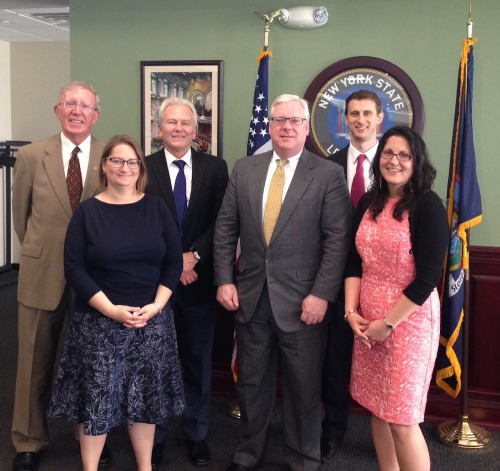
Floods, droughts, pests and pathogens were among the weighty topics considered at the New York State Capitol on Tuesday.
In the middle of a busy legislative session day, Sen. Tom O’Mara and Assembly member Steve Englebright, chairs of the Senate and Assembly environmental conservation committees, hosted a Cornell College of Agriculture and Life Sciences educational forum designed to provide insight into how extreme weather variations are impacting New York’s farm community. O’Mara and Englebright opened the forum, which also saw attendance by Assembly Agriculture Committee Chair Bill Magee, Assembly members Barbara Lifton and Cliff Crouch – along with a packed house of legislative and executive staff, and agricultural and environmental stakeholders. …
Horticulture Professor David Wolfe, a contributing author to the 2011 New York State ClimAID report, told the audience how increased “growing degree days,” changes in plant hardiness zones and fluctuations in extreme rainfall events are hitting New York’s farmers. With ecosystems changing as direct result of changing weather patterns and more extreme weather events, farmers will face greater challenges in dealing with invasive species, increased overwintering pests, early warming and unseasonable frost events, intensified rainfall and difficulty in predicting what types of crops to plant. Wolfe emphasized the need to focus resources towards Cornell’s New York State Integrated Pest Management program, noting the prevalence of new and different pests will bring more challenges to farmers that should be met with by environmentally sensitive strategies for control.


